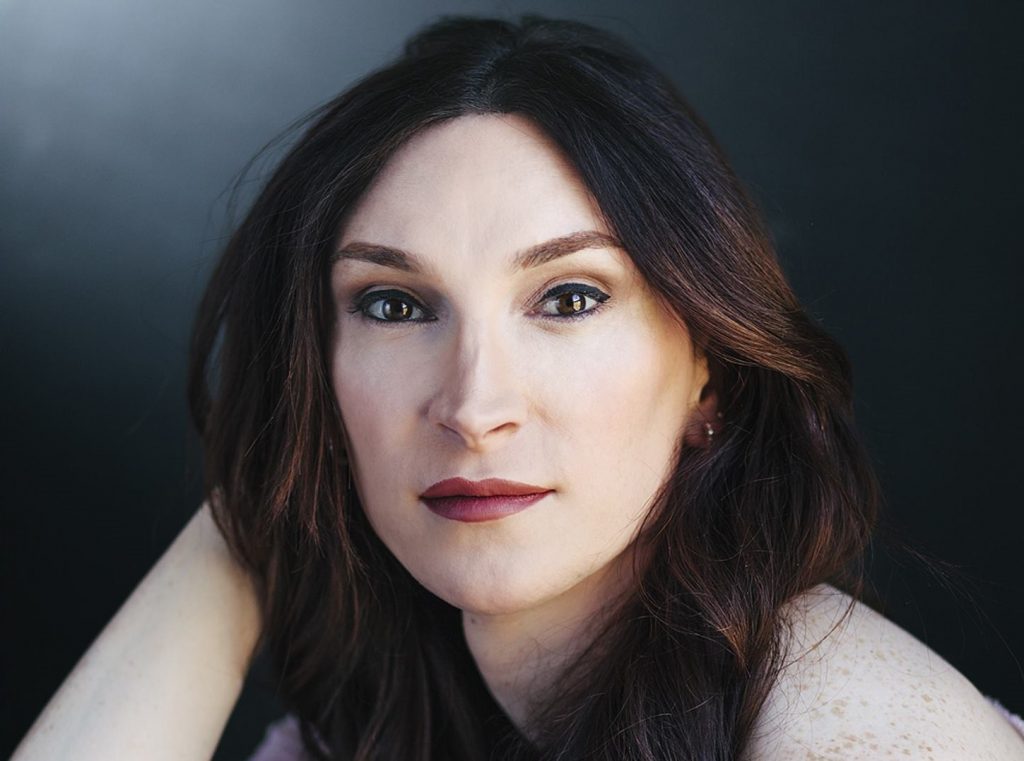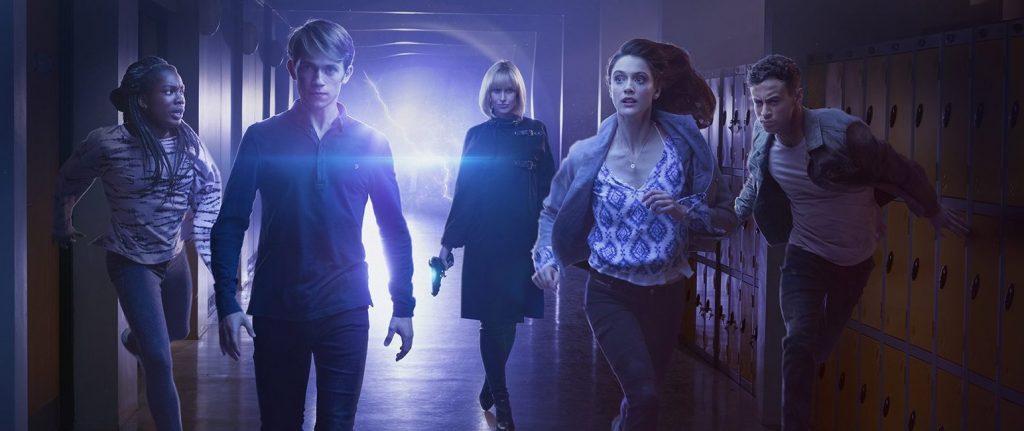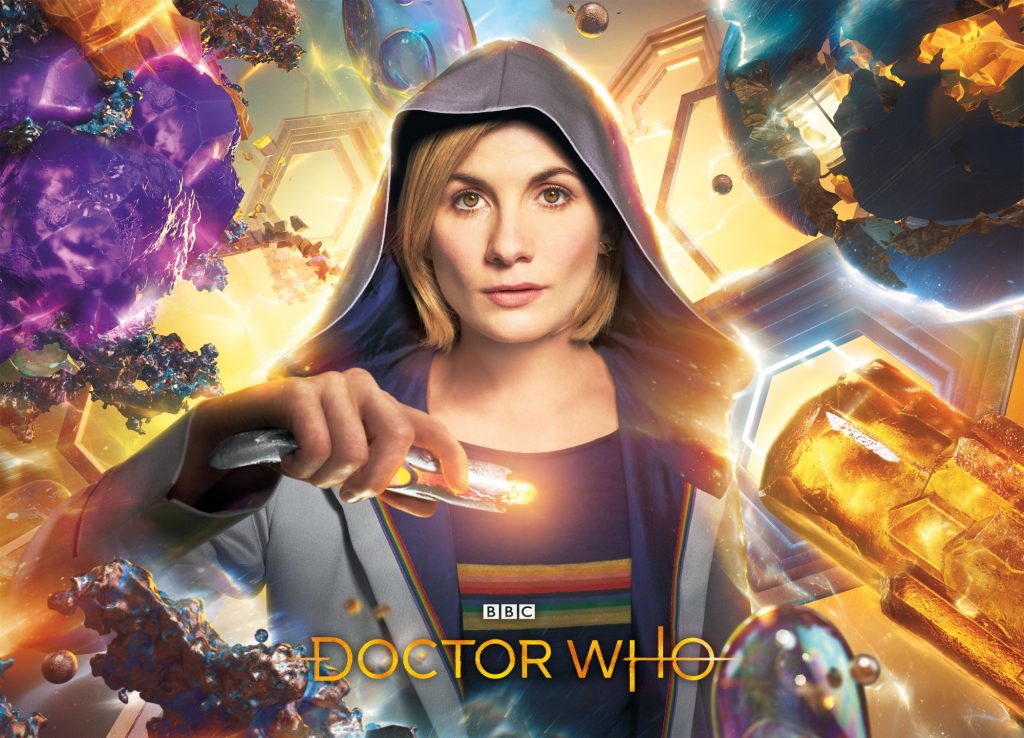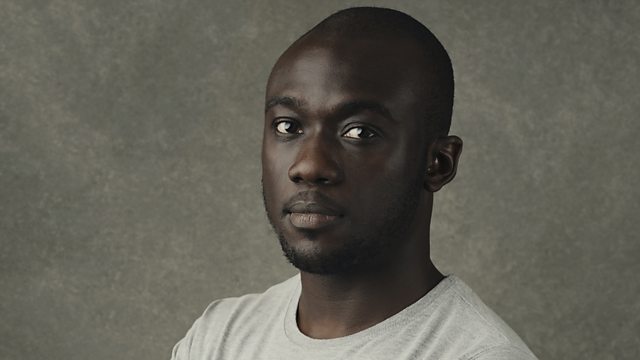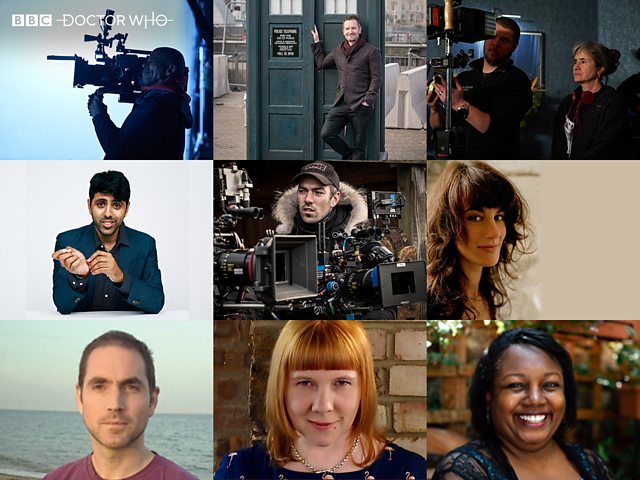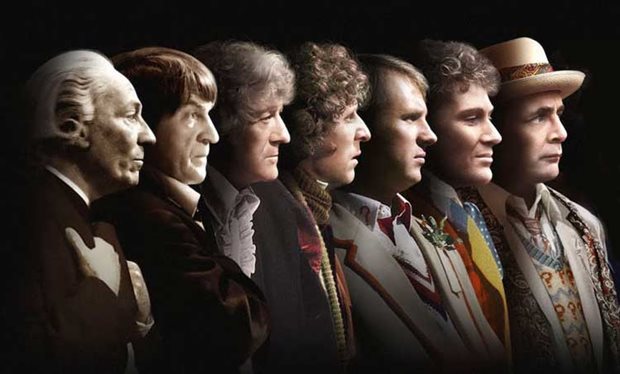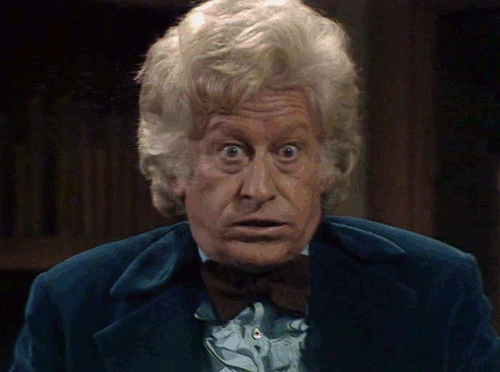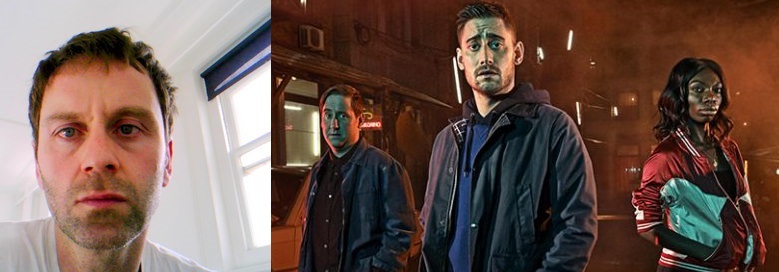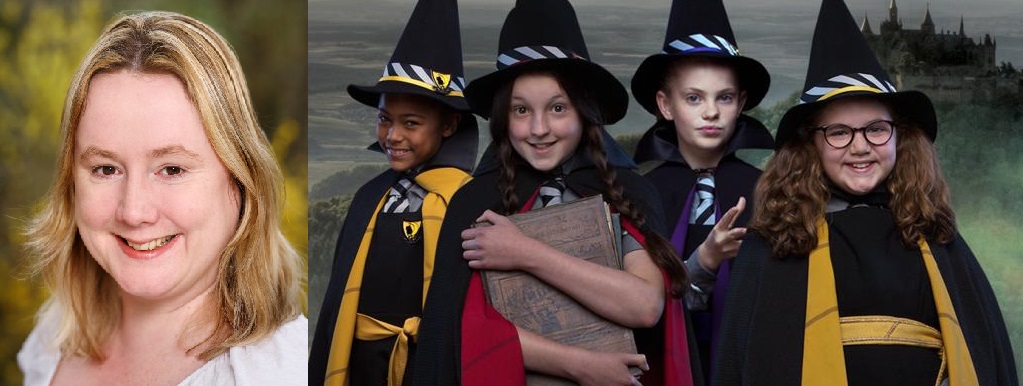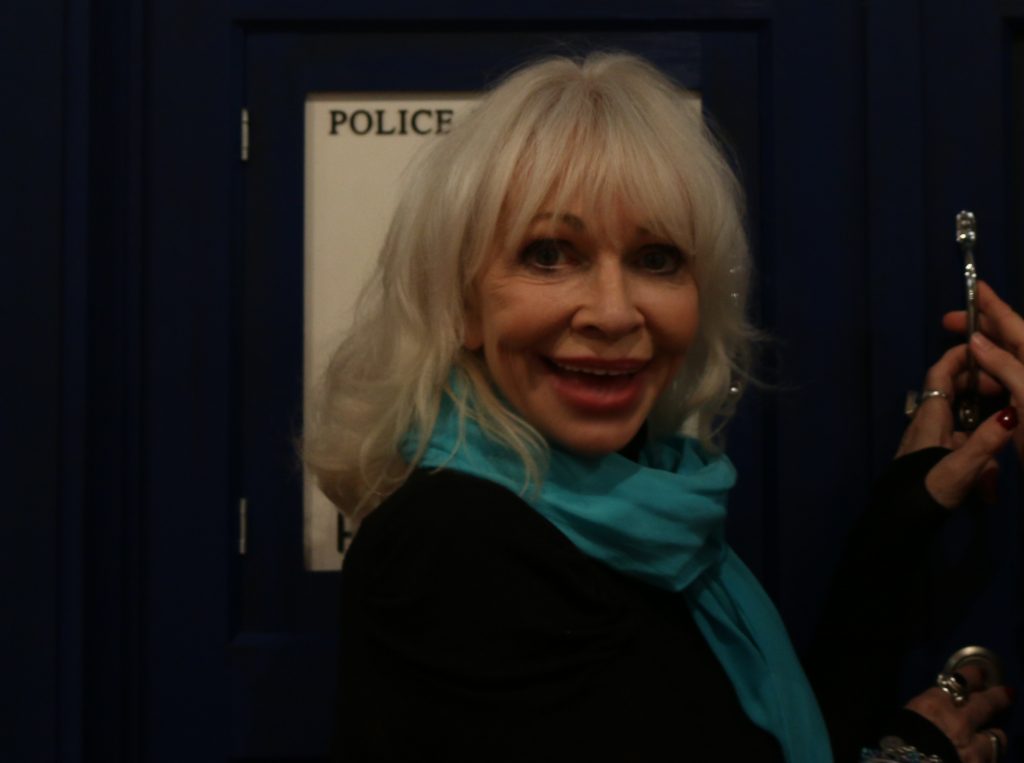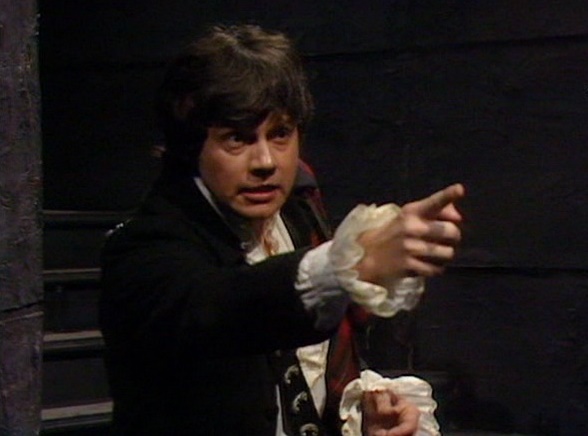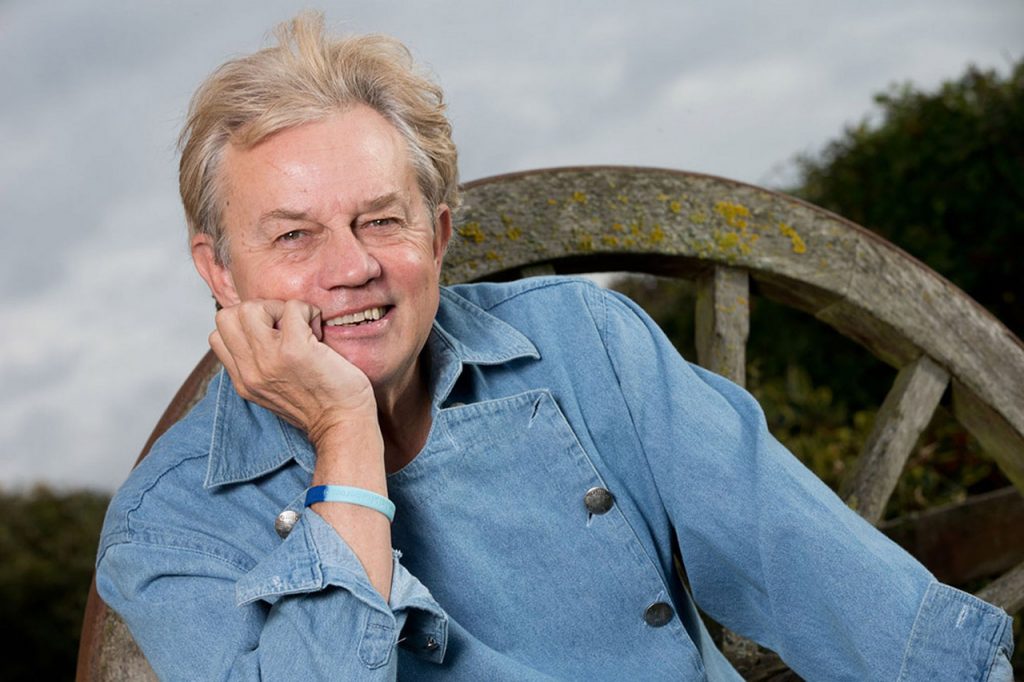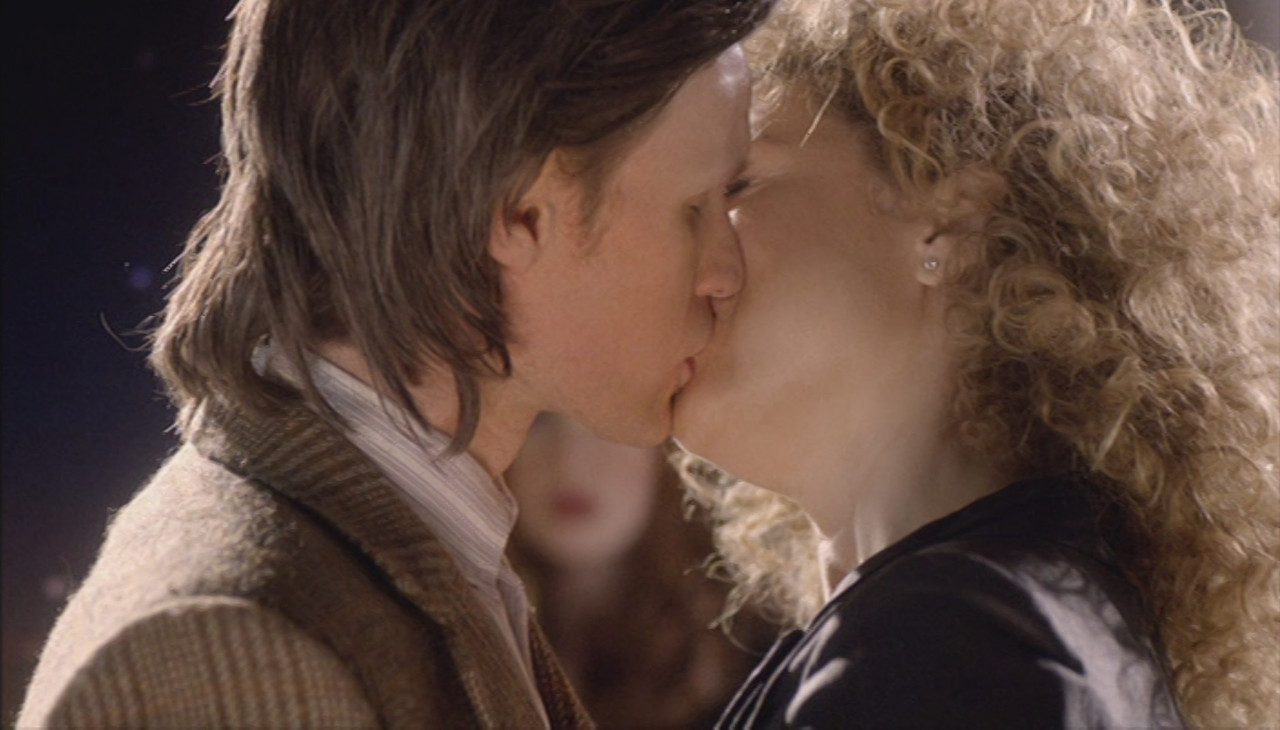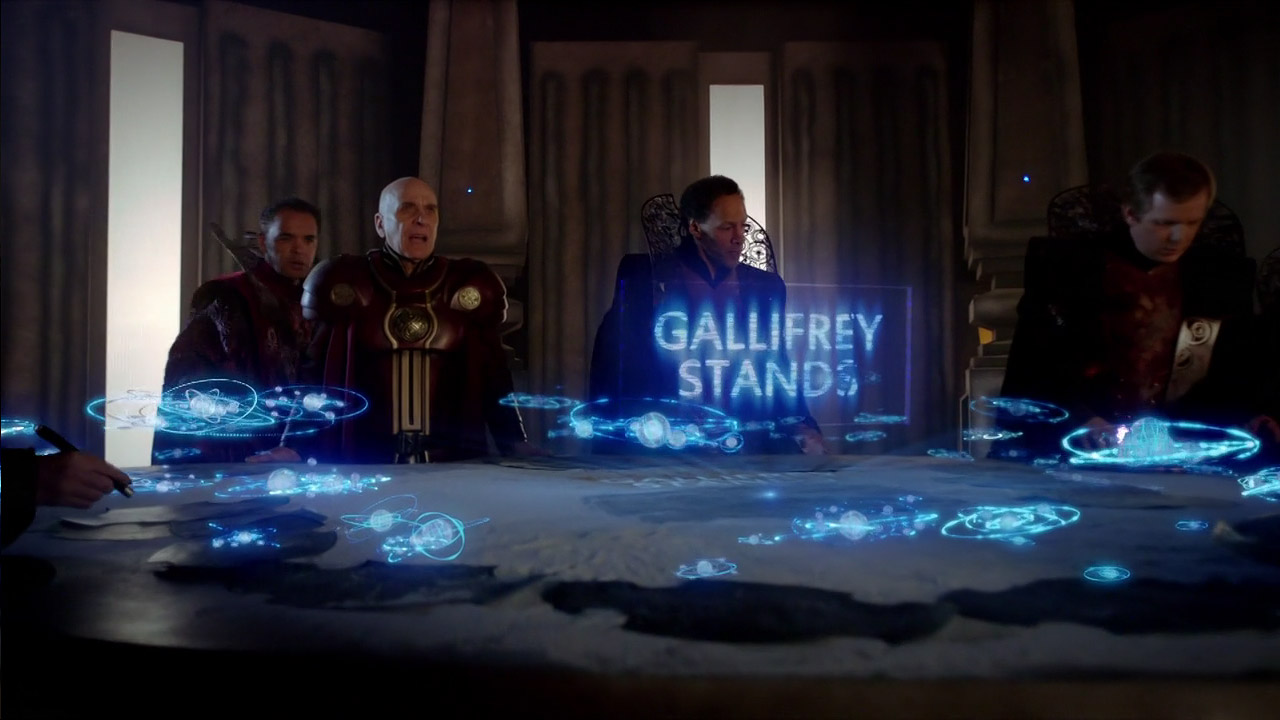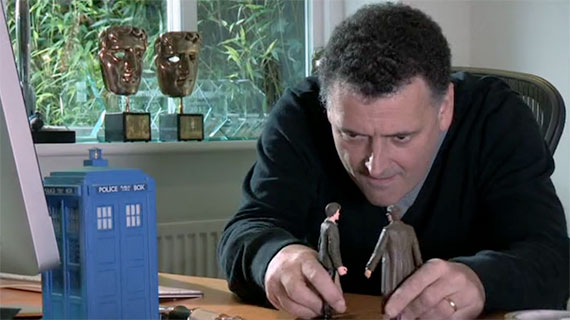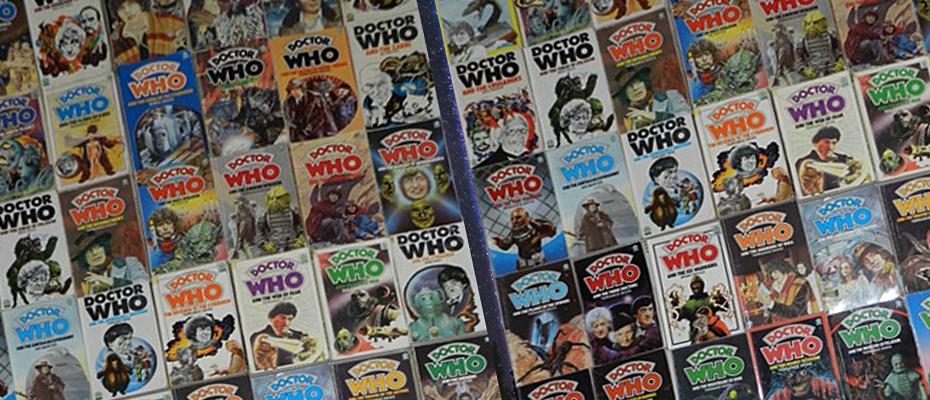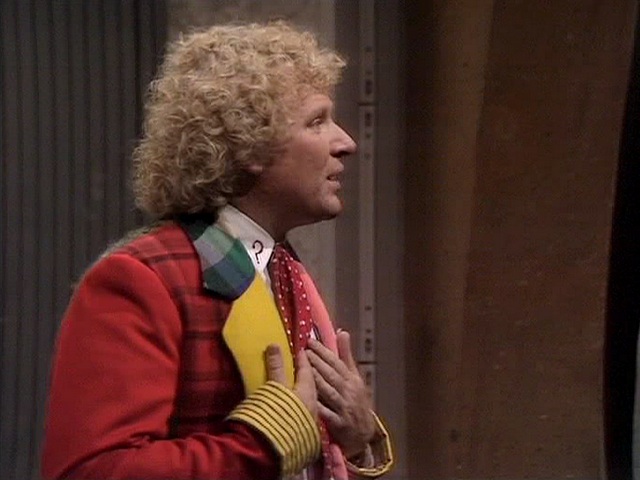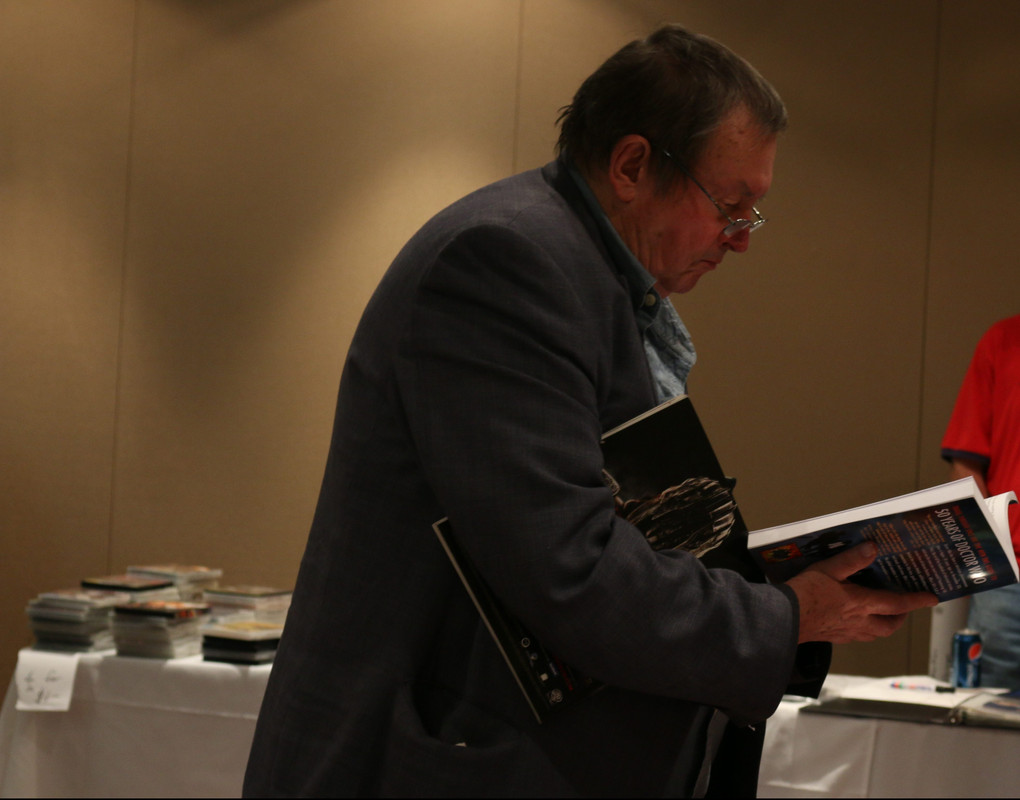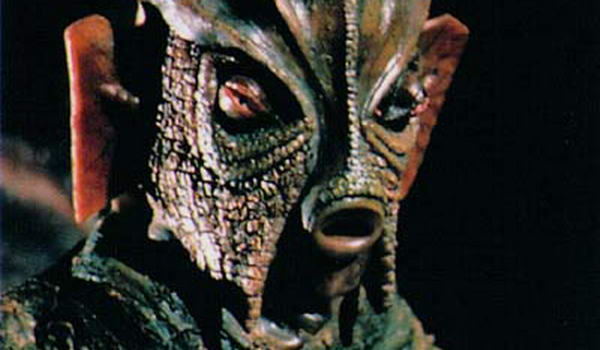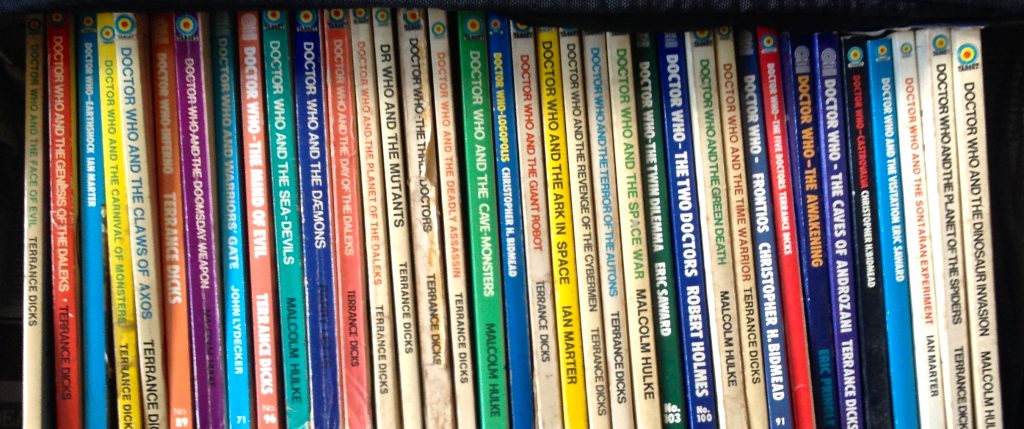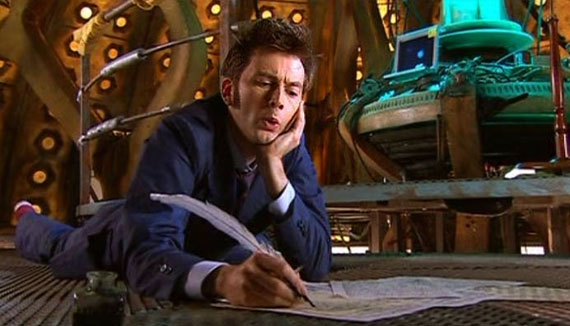With the Thirteenth Doctor about to land on our screens, we thought we would take a look at each of the previous stories to introduce a new Doctor and see how they all stack up, from the not-so-great, to the greatest of all time.
12. The Twin Dilemma (The Sixth Doctor)
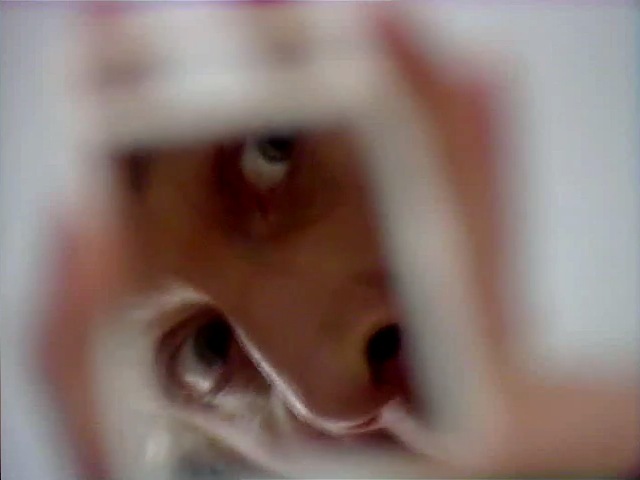
There’s a lot to unpack in The Twin Dilemma (it may be the most notorious Doctor Who story of all time), and it’s probably impossible to do it all justice in such a short space. Nevertheless it should be said that whilst the production has a litany of flaws, the central idea of the new Doctor’s seemingly unlikeable characterisation is in fact a good one – that the Doctor’s swerving from overconfidence to self-loathing from moment to moment can still provoke a sense of unease so many years on is a testament to just how compelling an idea it is. Unfortunately, this idea is hampered at almost every turn (there’s Peter Moffatt’s flat and uninspired direction, the lack of an emotional through-line for the Doctor’s companion Peri and that scene just to name a few) and whilst there is some improvement in the second half, there’s still a feeling that what should be the most exciting thing about the story comes across as merely another troubled element in an introduction that’s a bit of a mess.
11. Robot (The Fourth Doctor)

Whilst the Fourth Doctor remains one of the most popular in the series history, his first adventure feels like a bit of a misfire. Robot is more a victory lap for the Third Doctor’s era than a bold new beginning, with the overall tone being cosy and comfortable. There’s a cartoonish quality that permeates the story – complete with a cardigan-wearing scientist and an envelope containing nuclear codes with ‘TOP SECRET’ written in large, friendly letters on the front – so ultimately it’s hard not to see this story as something of a lightweight. A few eccentricities aside, the story doesn’t have anything terribly interesting for the new Doctor to do, so Tom Baker’s first performance in the role is competent, but hardly remarkable – much like the story itself.
10. Castrovalva (The Fifth Doctor)

Coming off the back of seven seasons of Tom Baker’s boisterous and confident Fourth Doctor, Castrovalva’s big new idea is to make the new Doctor vulnerable. It does this by putting him in a fragile post-regenerative state, to the extent that complex architecture makes him feel a bit faint (no, really). There’s an interesting structure to the story, with an initial plot centred on the regular cast segueing into a larger plot concerning the titular city, all stitched together by the Doctor’s need to recuperate. This does well for introducing the new Doctor, showing off some of his strengths early on despite his poor condition, but the rest of the regular cast are underused – Adric is kept away from the main action until the story’s climax, whilst newish companions Tegan and Nyssa spend several scenes talking about the plot or climbing over rocks instead of properly getting to know eachother. The end result is a story that is pleasantly odd in its own quiet way.
9. The TV Movie (The Eighth Doctor)

The TV Movie boasts some impressive visuals, with loads of great directorial and design touches – the decision to intercut the regeneration scene with footage from Frankenstein is inspired. But its best moments are when it’s being a bit self-aware and undercutting the cheesy cliches that come with the kind of story it is telling, though sometimes it can’t help but play them straight. As an American co-production it also has to burden itself with a fair bit of continuity, plonking in an extended cameo from the Seventh Doctor and some hefty dollops of Time Lord mythology, as if to say ‘yep, it’s still the same show’. Despite some good moments, the script may be the weak link – with a clock motif that feels a bit too literal and dialogue that occasionally feels dumbed down. Ultimately, the TV Movie probably benefits from being a one-off, with the sense of it being a temporary interlude helping to forgive some of its stranger missteps. For one night only, Doctor Who is a ’90s American TV show, for better or for worse.
8. The Christmas Invasion (The Tenth Doctor)

With the return of Mickey, Jackie and the Powell Estate, much of this feels like a business-as-usual continuation of the Ninth Doctor’s era – and largely it is. There’s the same sense of fun, with some neat sight gags in the shape of deadly brass band Santas and a destructive whirling dervish of a Christmas tree. The new Doctor gets a mini-plot dealing with the ‘pilot fish’ Santas in the first act of the episode, allowing him to then be out of the action again until the climax. When he’s not unconscious, the Doctor isn’t really given anything particularly interesting to do, but he is noticeably cheekier, and friendlier than his predecessor. Whilst there isn’t anything particularly bad about the episode, there’s nothing amazing either and there’s an overall sense of okayness about the whole thing.
7. Deep Breath (The Twelfth Doctor)
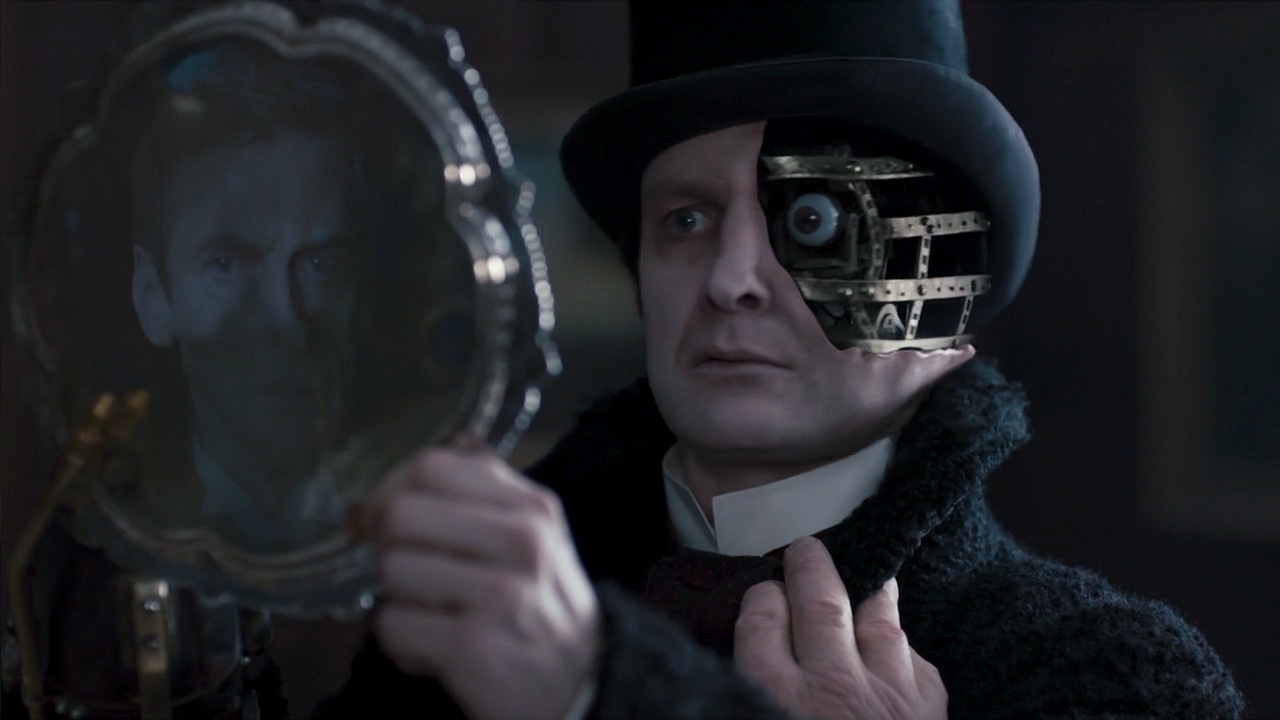
Doctor Who was in a strange place around the time of Deep Breath – the recent 50th anniversary saw the program ascend to the height of its powers in terms of popularity, but creatively it was feeling as if it was starting to stagnate. Deep Breath has the paradoxical task of refreshing a show that is stuck in a rut whilst reassuring the audience that nothing has changed and the show is still a smash-hit. Unsurprisingly, the end result is a bit of a mixed bag, with some elements that work (an unknowable, unpredictable new Doctor who has a fantastic dynamic with companion Clara) and others that don’t (the shoehorning of a crush on the old Doctor into Clara’s characterisation, the Paternoster Gang not being given much to do), but by and large it succeeds where it really matters
6. Time and the Rani (The Seventh Doctor)

The fan community tends to take introductory stories rather seriously – they are meant to be big, momentous occasions tasked with the important job of jettisoning what didn’t work in the previous era, retaining what did and demonstrating a confidence that reassures fans that the show can keep going. Time and the Rani doesn’t bother with these fannish expectations at all, instead delivering some lively action, weapons-grade goofiness and the odd bit of physical comedy to re-establish the idea that Doctor Who is a show that is actually fun to watch. It’s something close to a classic series version of Partners in Crime, with the Doctor and his companion Mel narrowly missing each other on a number of occasions and then later each accusing the other of being an imposter. Much of the supporting cast aren’t anything to write home about, but Sylvester McCoy (the Doctor), Bonnie Langford (Mel) and Kate O’Mara (The Rani) bring a sense of fun to proceedings that is positively infectious. You’d have to be a total killjoy to not get some entertainment out of this.
It’s also the source of this gif, which has to count for something.

5. The Eleventh Hour (The Eleventh Doctor)

Back in 2010, this felt like the new showrunner Steven Moffat playing it safe – and, given how popular the Tenth Doctor had become, perhaps it was sensible to do so. Looking at it now however, it seems so full of Moffat’s signature double meanings and structural cleverness that it’s hard to not see this as a bold statement piece. Many of the main themes of the era are present from the beginning – perhaps most notably the theme of childhood. There’s a great scene where the Doctor convinces new companion Amy of who he is by reminding her of her childhood memories, metaphorically reminding the audience that this is the same character that many viewers hold a strong childhood affection for. It’s not without its failings, with the pace dragging in some of the final scenes and a Doctor whose characterisation doesn’t go much beyond ‘has drunk too much red cordial’, but this makes for a confident start to a new era.
4. Spearhead from Space (The Third Doctor)
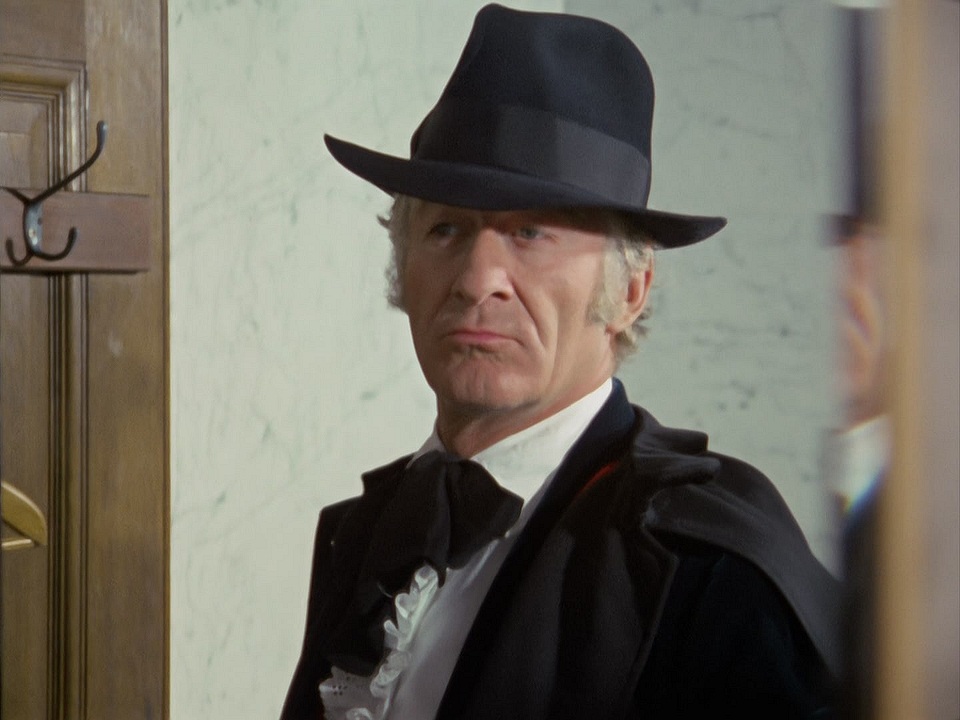
Spearhead From Space signals one of the biggest changes in Doctor Who’s history. After many years as a show that could be set anywhere, anywhen, Doctor Who came down to Earth to be set in what was more or less the here and now. Making UNIT a key part of the ongoing show was part of the new format, and the story handles this by making the UNIT characters, including commanding officer Brigadier Lethbridge-Stewart and scientific adviser Liz Shaw (soon to fulfil the role of the Doctor’s companion) drive the main action for the first two episodes before the Doctor comes into his own in the back half. Liz is a great, if underrated, character with an intelligence and maturity that makes her a great match for the new Doctor. There’s also a (sadly temporary) transition to shooting the whole programme on location and on film, which kicks the production values up several notches and results in some of the best action sequences in the series to date. There’s an annoying poacher character and a slightly embarrassing tentacle monster at the climax, but by and large this is sterling stuff.
3. Rose (The Ninth Doctor)

Watching in 2018, Rose may seem like a small-scale, unremarkable story considering everything that has come since its first broadcast. However, there’s an awful lot packed into its 45 minute running length, communicating the foundations of the show in a pacy, entertaining way. Back in 2005, Rose had the tricky task of reintroducing Doctor Who to a mainstream audience that was much less geeky than that of today. It manages this by placing the story in an everyday, unglamourous setting and then throwing lots of adventure and excitement into it, so that the Doctor crashes into Rose’s ordinary world in the same way that Doctor Who crashes into the ordinary, not-particularly-geeky world of the general audience. It helps that the balance between drama and comedy is just right, with the tongue in exactly the right spot of the cheek, making this one of the most well-judged episodes of Doctor Who ever made.
2. An Unearthly Child (The First Doctor)

There’s no doubt that the first episode of this adventure, introducing the two schoolteachers Ian Chesterton and Barbara Wright, their mysterious pupil Susan, a passive-aggressive old man called the Doctor and his impossible timeship the TARDIS is an outright classic. Some regard the remaining three episodes, featuring the four lead characters captured and threatened by a bunch of monosyllabic cavepeople, as less than stellar, but in fact the two portions of the story are enormously complementary – in particular, Barbara and Ian being out of their depth in the high-tech environment of the TARDIS is wonderfully mirrored by how out of depth all the travellers feel in the prehistoric setting that follows and there are strong themes throughout concerning the relationship between technology and power. The writing is full of tense and thrilling moments which the cast play deadly seriously and there’s a sense that everyone involved is giving this strange new show the best possible chance of success with the limited resources at their disposal. It’s not just the beginning of a legend, it’s a great piece of drama in its own right.
1. The Power of the Daleks (The Second Doctor)
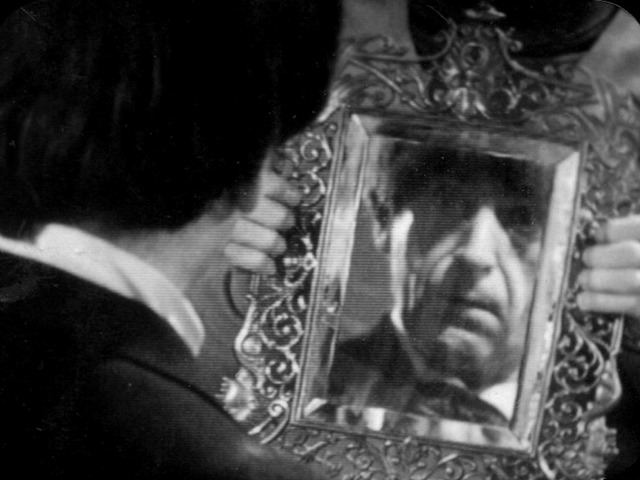
At six 25 minute episodes in length, Power of the Daleks is the longest story on this list, but fortunately it has plenty going on to sustain it. Aside from the Dalek plot revolving around the scientist Lesterson and his experiments to bring them back to life to aid an Earth colony, there’s also the political machinations going on in the wider human population and a good chunk of material devoted to companions Ben and Polly trying to figure out just who really is this dark-haired stranger that claims to be the Doctor. All of these strands end up revolving around the relationship between the Doctor and the Daleks – both of them pretending to be something they are not, and yet each of them verifying the true nature of the other. The guest cast are strong (especially Robert James’ Lesteron), the Daleks are at their devious best and the unpredictable new Doctor is electrifying. When it comes to introductory adventures, Power of the Daleks is the one to beat.
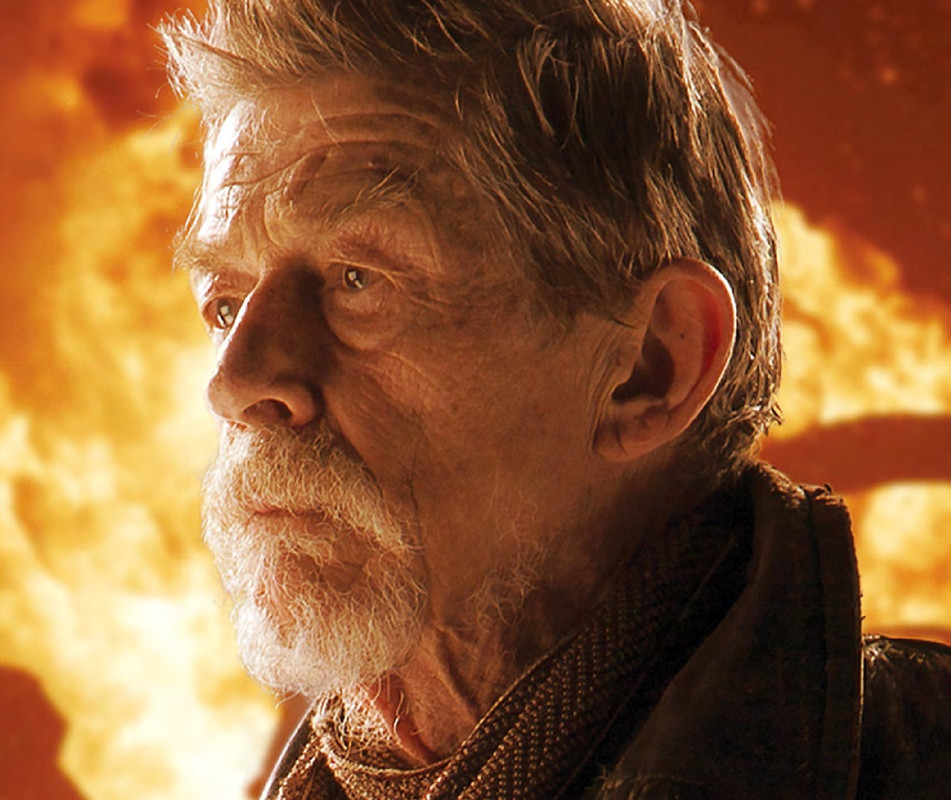
And that’s how all the introductory stories stack up. Looking at them as a group, they are a diverse bunch of stories, each with their own distinct tone and each having their own particular goals when it comes to transforming Doctor Who. Additionally, there should be an honourable mention for The Day of the Doctor, the sole full-length War Doctor story, which manages to contain a pretty solid emotional arc for the troubled warrior incarnation amongst all the celebratory bells and whistles. It’s also worth pointing out that some of the most popular Doctors are in the bottom half of this list, so even in the event that the Thirteenth Doctor’s first episode doesn’t turn out to be the best ever, that doesn’t mean that she won’t go on to have a popularity that endures.




